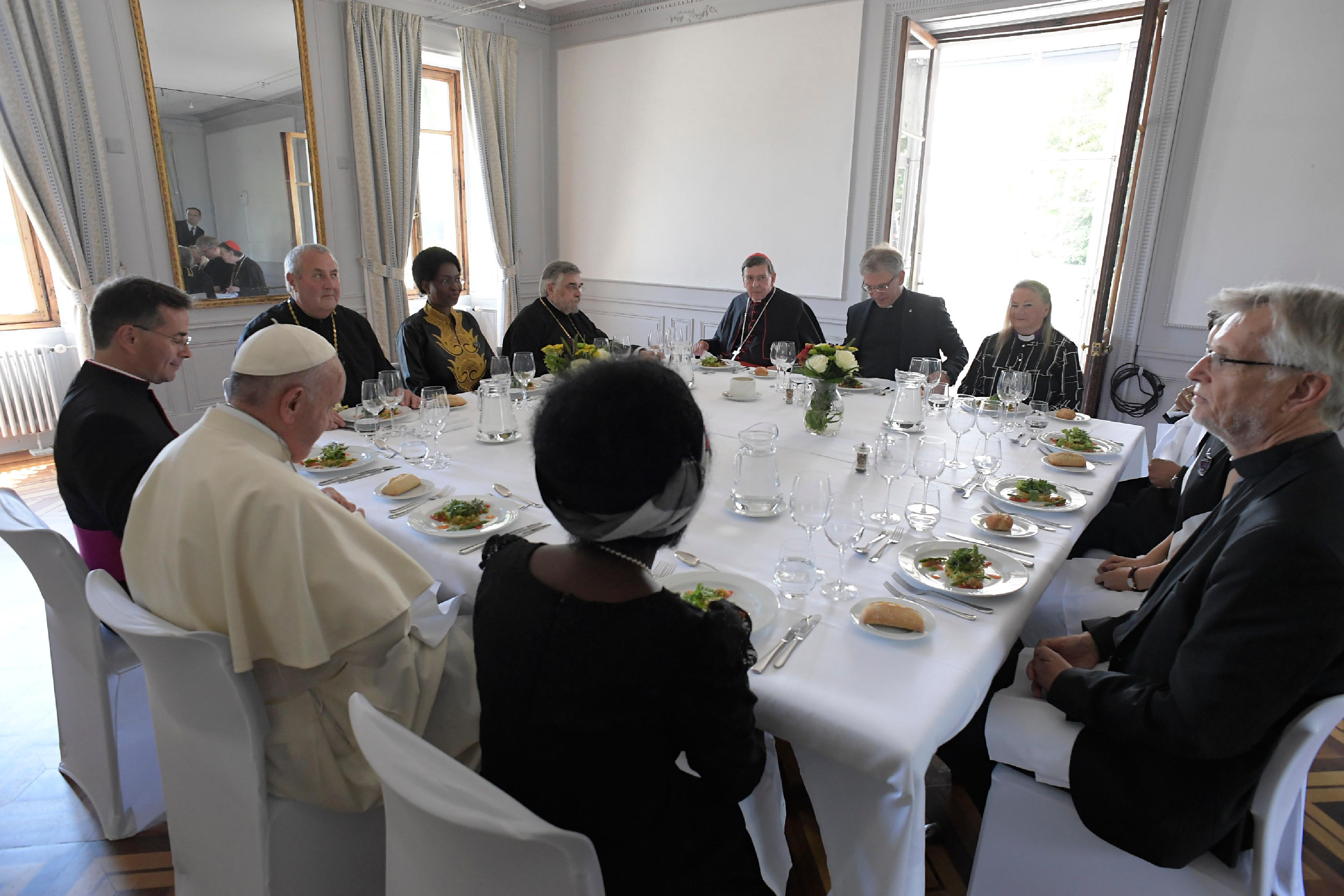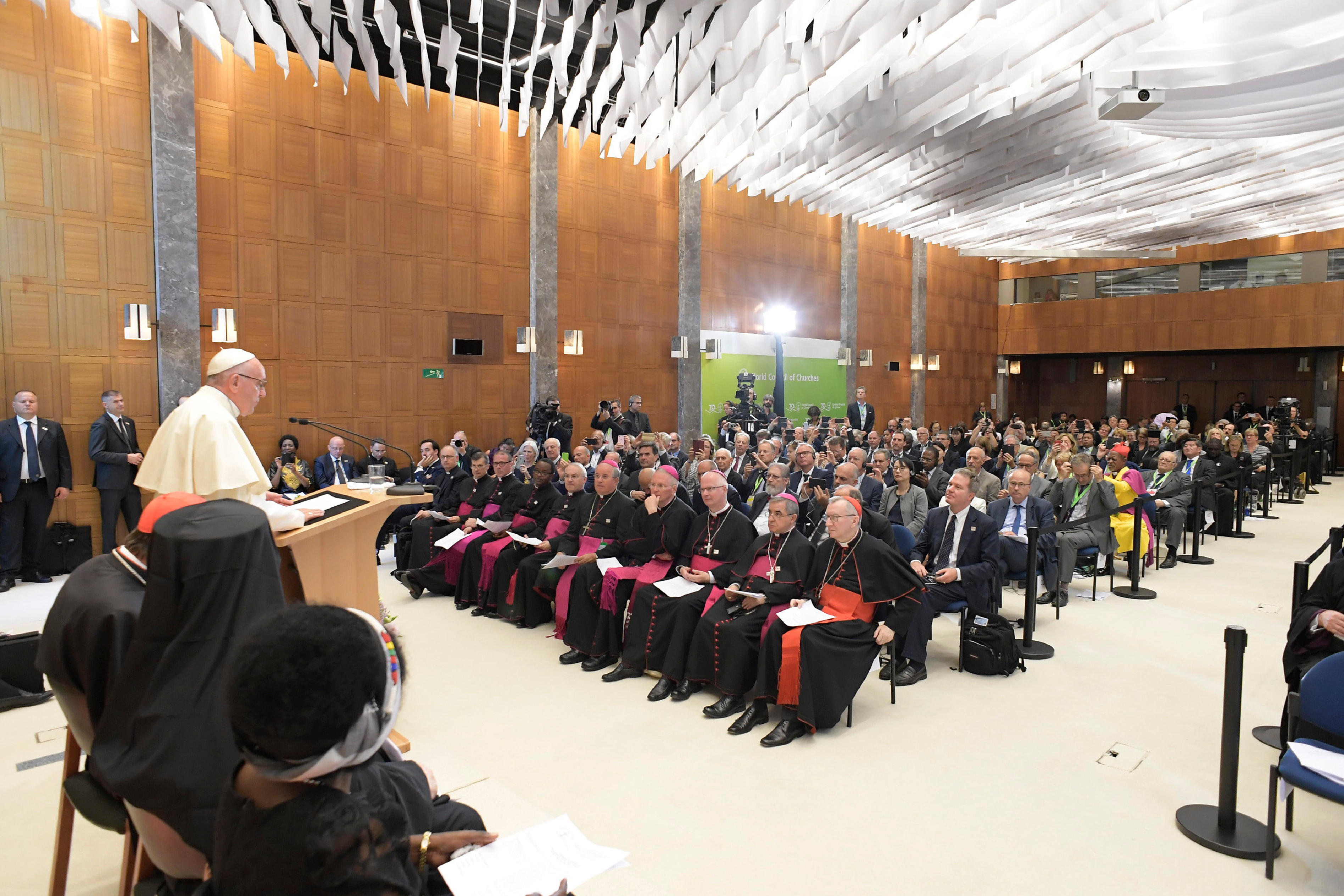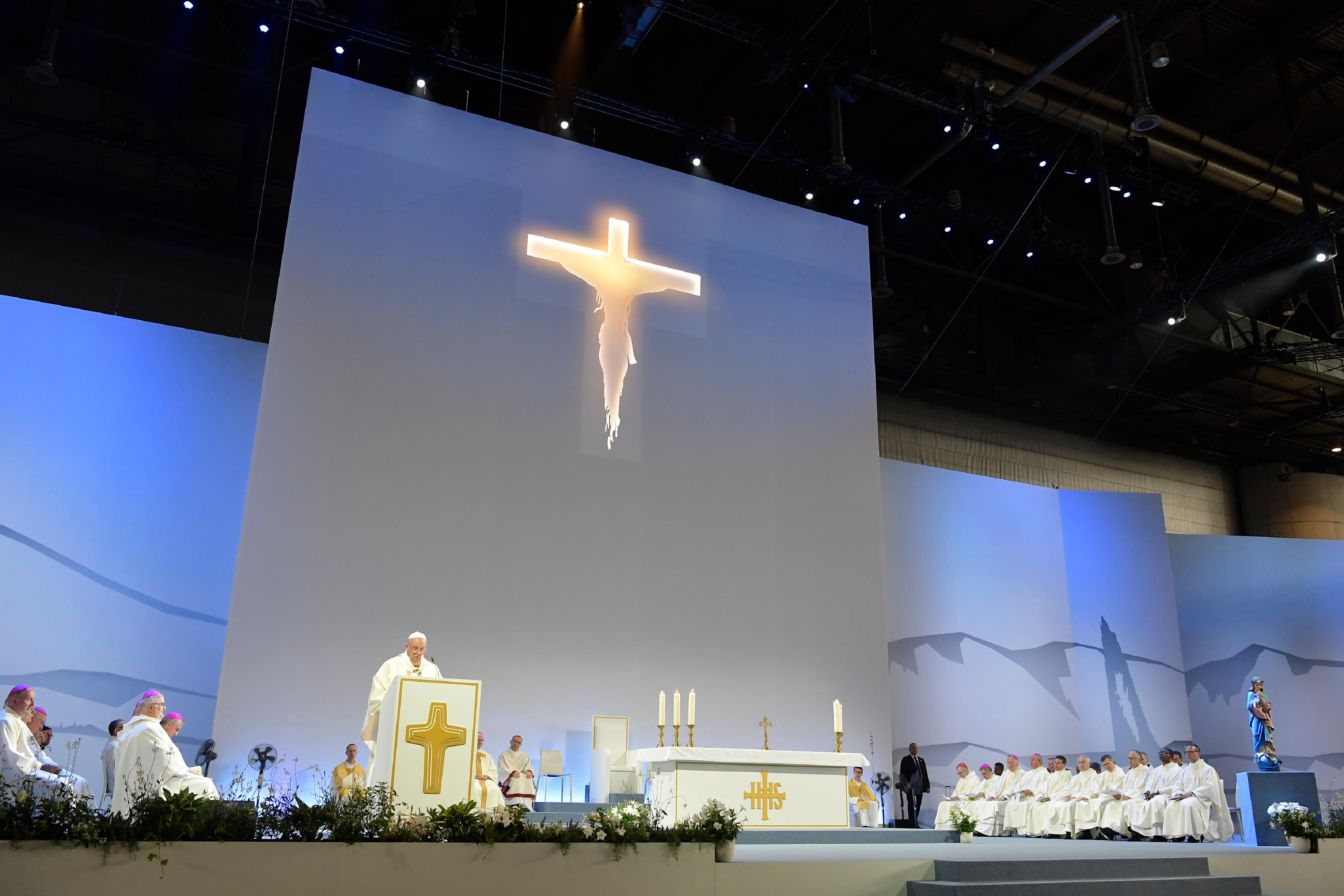
“We are not afraid to operate at a loss!” the Holy Father added impromptu, an exhortation delivered during his first speech on the occasion of the ecumenical pilgrimage to Switzerland – the third Pope to visit Switzerland after Blessed Paul VI and Saint John Paul II, the first to visit the World Council of Churches in Geneva (WCC), that celebrates thus year its 70th anniversary. Christians, whether “conservative” or “progressive”, the Pope said, must belong to Jesus and the Gospel before anything else. It’s a decisive preliminary choice, that is not an option. In the eyes of the world, ecumenism “is a great enterprise at a loss.” For Christians the choice is whether to “walk in the Spirit” or “gratify the desires of the flesh.”
“If we human beings are constantly on the move, and by closing our hearts to others we deny our very vocation, this is even more true of us Christians”, the Pope said in the opening remarks of the Ecumenical prayer in which he called to “reject wordliness” that led past attempts to end Christian divisions to fail miserably. All too easily we halt before our continuing differences; all too often we are blocked from the outset: it’s the first balance of ecumenism, which yesterday like today has a specific destination.
“Our world, torn by all too many divisions that affect the most vulnerable, begs for unity”,
is Francis’s appeal, who travelled to Geneva as a pilgrim in search of unity and peace. “The opposite path, that of division, leads to conflict and breakup!”, is the realistic gaze on today’s world. “For us as Christians, walking together is not a ploy”, for only the way of communion leads to peace.
After the lunch at the Ecumenical Institute in Bossey the Pope returned to the WCC for the ecumenical meeting, an occasion to take stock of the progress made so far and identify future steps. Forgiveness, typical of those who “found the courage to change the course of history, a history that had led us to mutual distrust and estrangement, and thus contributed to the infernal spiral of continual fragmentation”, the Pope said, enables us to extend our gaze and tear down “barriers of suspicion and of fear.” Today, thanks to those who before us opened the way to the Spirit,
“the direction has changed and a path both old and new has been irrevocably paved”
The Church grows by attraction, the Pope said quoting from Benedict XVI, calling for
“a new evangelical outreach for a “new ecumenical spring.”
The missionary mandate, to the farthest corners of the earth is not an option: the power of attraction of the Christian message is not the fruit of consensus, the People of God are not an NGO, the Pope said.
“Walking, Praying and Working Together”, is the motto of the visit. Walking “in” and “out”; pray together, because prayer “is the oxygen of ecumenism”; work as the “Faith and Order Commission” and the Bossey Ecumenical Institute, is the image transmitted by the Pope who highlighted – among the various initiatives – the growing participation in the World Day of Prayer for the Care of Creation as a sign of ecumenical closeness.
“The credibility of the Gospel is put to the test by the way Christians respond to the cry of all those, in every part of the world, who suffer unjustly from the baleful spread of an exclusion that, by generating poverty, foments conflicts.”
It’s the litmus test of ecumenism in a world where “the more vulnerable are increasingly marginalized, lacking their daily bread, employment and a future, while the rich are fewer and ever more wealthy.”
“We cannot look the other way. It is problematic when Christians appear indifferent towards those in need”,
urged the Pope. The Lord will examine us on our love for our neighbour, for each of our neighbours: “Let us see what we can do concretely, rather than grow discouraged about what we cannot”, the proposal: “Let us ask ourselves: What can we do together?”.
Father, bread and forgiveness are the three guiding words of the closing Mass at the Palaexpo in Geneva, before the return flight to Rome. In his last speech, Francis recalled that “none of us is an only child. Each of us must care for our brothers and sisters in the one human family.” Exhorting the faithful to pray “Our Father”, “a roadmap for the spiritual life”, roots in our often rootless societies, the Pope underlined that “every human being is part of us”, and that we are all called “to overcome all indifference towards our brothers or sisters, towards any of our brothers or sisters. This includes the unborn, the older person who can no longer speak, the person we find hard to forgive, the poor and the outcast.”
“Woe to those who speculate on bread!” is the second counsel for many who seem “pumped-up”,
rushing from dawn to dusk, between countless phone calls and texts, with no time to see other people’s faces, full of stress from complicated and constantly changing problems”, the Pope said. Christian lifestyle must be one that swims against the tide, “a sober lifestyle, free of unnecessary hassles”; one that chooses the simplicity of bread, “people over things so that personal, not virtual, relationships may flourish.” Finally,– also in the ecumenical realm –
“we should take a good x-ray of our heart” for “a general amnesty for the sins of others.”














